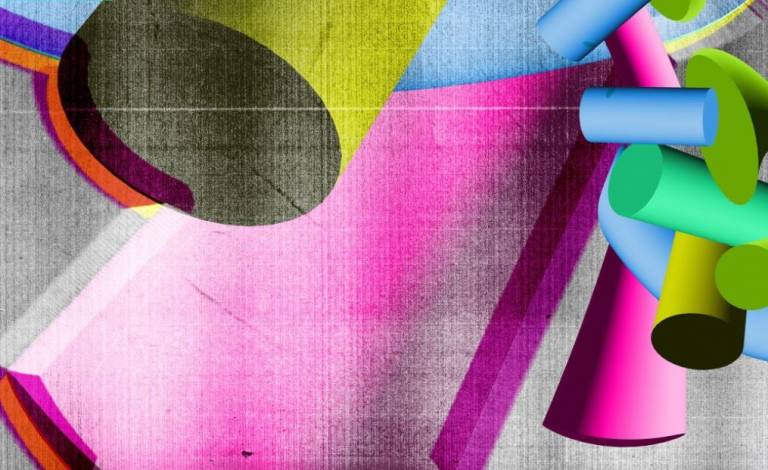VIRTUAL —PPV: Birzhastation by PiraMMMida.life — Open Discussion with Misha Svanidze
25 October 2020, 4:00 pm–5:00 pm

Birzhastation is PiraMMMida’s Georgian operation, realised within the framework of Tab 2020: The Tbilisi Biennale of Architecture
This event is free.
Event Information
Open to
- All
Availability
- Yes
Cost
- Free
Organiser
-
Michal Murawski, Maria Mileeva, Denis Maksimov and David Roberts in collaboration with Ana Chorgolashvili and David Brodskym.mileeva@ucl.ac.uk; denis@avenirinstitute.info
How does the idea and practice of birzha transform through Georgia’s post Soviet history? Is it a symptom of social and political development or does it signify resistance? Are we losing birzha as a minimal public space and, if so, what comes after?
Mikheil Svanidze is a sociologist from Tbilisi. He has studied Sociology at Tbilisi State University and obtained a Master’s degree in Social Anthropology from the Central European University. His research interests include public space, social movements, inequality, mobility and politics at large in post-socialist context. Methods-wise Mikheil positions himself as an anthropologist with extensive qualitative fieldwork expertise. Currently he is working towards his PhD thesis on production and reproduction of urban inequality in Georgia as seen through the lens of Tbilisi’s formal and informal transport systems.
Language: English/Georgian/Russian
About Birzhastation
Birzhastation is an archaeological exploration of the neoliberal ideology of architectural transparency in the post-socialist world (and in the global “wild capitalist” reality of the 21st century).
Birzhastation - named in a fiddly, imaginative cocktail of Georgian, Russian and English - represents an archi-ethnographic exploration of the possibilities and pitfalls of nice-sounding ideas (transparency, openness, horizontality, togetherness, the commons) in a time of an ideological crisis, and amid a global rise of the new types of militarized police regimes. While in many countries of the world we are still naively enamoured by architectural transparency as a metaphor of political openness and economic honesty, in Tbilisi - the city, in which ex-President Misha Saakashvili built “anti-corruption” all-glass police stations - people tend to be more cautious. One of the aims of Birzhastation is to encourage the rest of the world to learn about Tbilisi’s political-aesthetic experience.
Birzhastation is located on the territory of the Soviet-era “Academic City” (Akademgorod) and merges with the contextual importance of the place.
The shape and the features of Birzhastation – symmetrical, horizontal, neutral, rectangular, experimental, semi-transparent, dramatically-lit – echo the typology of the besedka (the word comes from Russian беседа, which means conversing), one of the simple architectural elements of numerous Soviet cities, villages, micro-districts, parks and courtyards. Besedka is a place for gathering, communicating, playing, social condensation; and represents one of many types of Birzha. Birzha itself is a Georgian word designating a site for social togetherness that groups together many different forms, characteristics and ideas and is usually located in creatively-adapted public spaces. Birzhas are typically self-organized by people themselves.
The former Academic City, in turn, is a place that well reflects the failures as well as success and afterlives of both Soviet (socialist) and post-Soviet (neoliberal) systems. This is a place of the collapse of vertical ideologies. Since the 1990s, under the extreme conditions of Wild Capitalism, this chaotically developed area has combined elements of 1930s Stalinist Soviet architecture, the unrealized idea of the Academic City itself (1960s and 1970s architecture) and the remains of some slums and barracks.

Rendering of Birzhastation (under construction) by David Brodsky
In the framework of TAB, Birzhastation will host an active programme of discussions, debates and libations (physically and online) to create a zone of openness, publicness, intimacy, perversion, wildness, commonality, and collective social condensation, inspired by the Georgian practice of Birzha – which stands in opposition to the pseudo-transparency (pseudo-prozrachnost) of the neoliberal ideology of architectural transparency in the post–socialist world. The program will also feature a discussion on all-glass police stations built throughout Georgia during Saakashvili’s Presidency. These buildings were supposed to symbolise total transparency and the struggle against corruption and police brutality. Rejecting the pseudo-prozrachnost of police space, our Birzhastation will thus be a site of Post-Pseudo-Prozrachnost (PPP). The online and physical space of Birzhastation will also be open for local interventions.
Birzhastation is the Tbilisi incarnation of PiraMMMida, an online/IRL exhibition realised in 2020-21 by PPV (Perverting the Power Vertical), a London-based University College art and research platform (www.pirammmida.life). Documentation of the project will be co-published by TAB and piraMMMida (online and as part of the forthcoming piraMMMida book) .
Partners/co-sponsors: UCL School of Slavonic and East European Studies; UCL FRINGE Centre for the Study of Social and Cultural Complexity; UCL Bartlett School of Architecture; Courtauld Institute of Art, University of London; TAB (Tbilisi Biennale of Architecture)
Tbilisi Architecture Biennial is co-funded by the Creative Europe Programme of the European Union
Please find further information here.
 Close
Close

